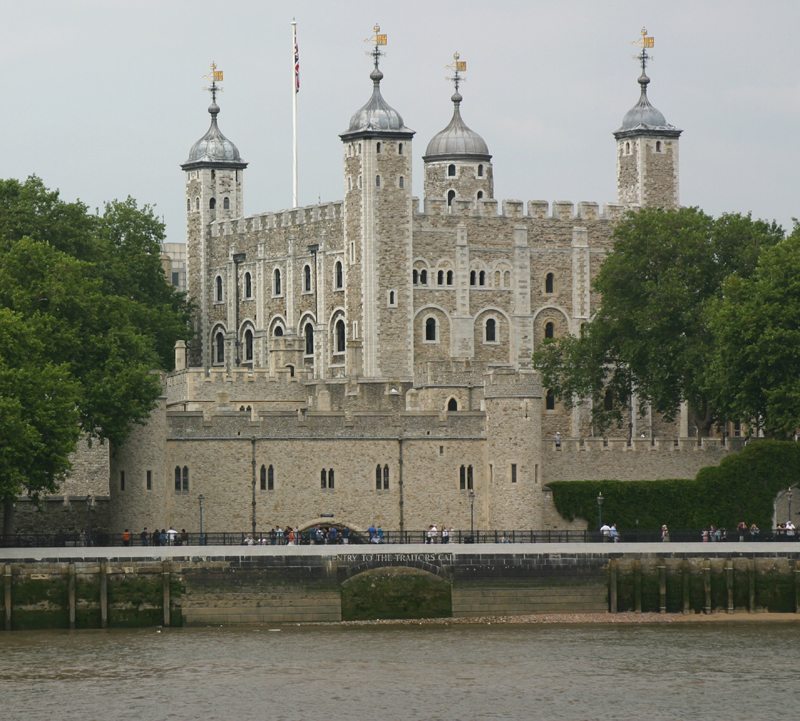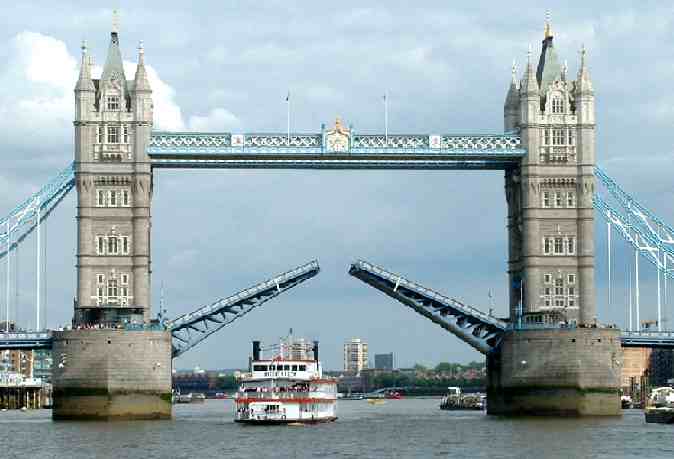


 The Tower of London
The Tower of Londonby Paul Lowman and Katrell Morgan
The Tower of London is a complex made up of many different sections. The Tower is surrounded by a moat on three sides and the Thames River on the fourth. The outside fortifications consist of Legge's and Brass Mount. The inner fortifications, called the Ballium Wall, have 12 towers: the Bloody Tower, the Wakefield Tower, the Bell Tower, the Lanthorn Tower, the Salt Tower , the Broad Arrow Tower, the Constable Tower, the Martin Tower, the Brick Tower, the Bowyer Tower, the Flint Tower, the Devereux Tower, and the Beauchamp Tower. The Bloody Tower was named after the murder of the English child king Edward V and his brother, Richard Plantagent, Duke of York, which occurred in this tower. The Record, or Wakefield Tower, was where the records were formerly kept, and where the royal regalia, or Crown Jewels, are currently kept. The Devereux Tower is named for its most famous prisoner, Robert Devereux, Earl of Essex, who was held there before his execution for treason in 1601. The Jewel Tower was named for once holding the royal regalia.
The royal apartments at the Tower of London were used as guest rooms for visits by the court, but mostly the fortress was used as a state prison. The earliest of the prisoners held there was Rannulf Flambard, Bishop of Durham. Others who were once imprisoned in the Tower are kings and princes, archbishops and abbots, queens and murderesses, traitors and saints, and freebooters and counterfeiters. The kings of Scotland and France were held there for ransom after their defeats in battle. It was used as a prison as late as World War II.
Many torture devices were made for the Tower. One was the rack, which would stretch out a person to a foot longer than his original height. There were also the scaffold and gallows, which were put up on Tower Hill in order to execute people. This apparatus was the most commonly used device for excecuting others. Most prisoners were beheaded or hanged, some were killed trying to escape, or they were murdered. Anne Boleyn and Catherine Howard, wives of Henry VIII, were publicly executed on Tower Hill.
The Tower of London
by Paul Lowman and Katrell Morgan
Today the Tower of London is a popular tourist sight where the crown jewels are kept. They are guarded in the Jewel House in the Waterloo Block. The Tower of London also holds a museum of old armor and weaponry used by the people in the Elizabethan period. Among them are many different styles of armor from all around Europe and weaponry such as cannons and duelling pistols. A popular feature of the Tower of London is the Yeomen of the Guard, known as Beefeaters. These guards wear colorful uniforms from the Tudor period. There are about 40 of these guards who serve as officers of the Army, Royal Marines, or Royal Air Force. They are sworn into their office as Yeomen Extraordinary of The Queen's Bodyguard of the Yeomen of the Guard, which was founded by Henry VIII in 1485. The yeomen's closing ceremony at the end of each day is a popular tourist attraction.
The Tower of London is one of the most important architectural sites in London. It is the home of the Yeoman guards, along with the crown jewels. It has a vast array of influences from the different cultures who added to this remarkable building. Now it has changed into the popular tourist sight that is a must-see because of its rich history and cultural variety.